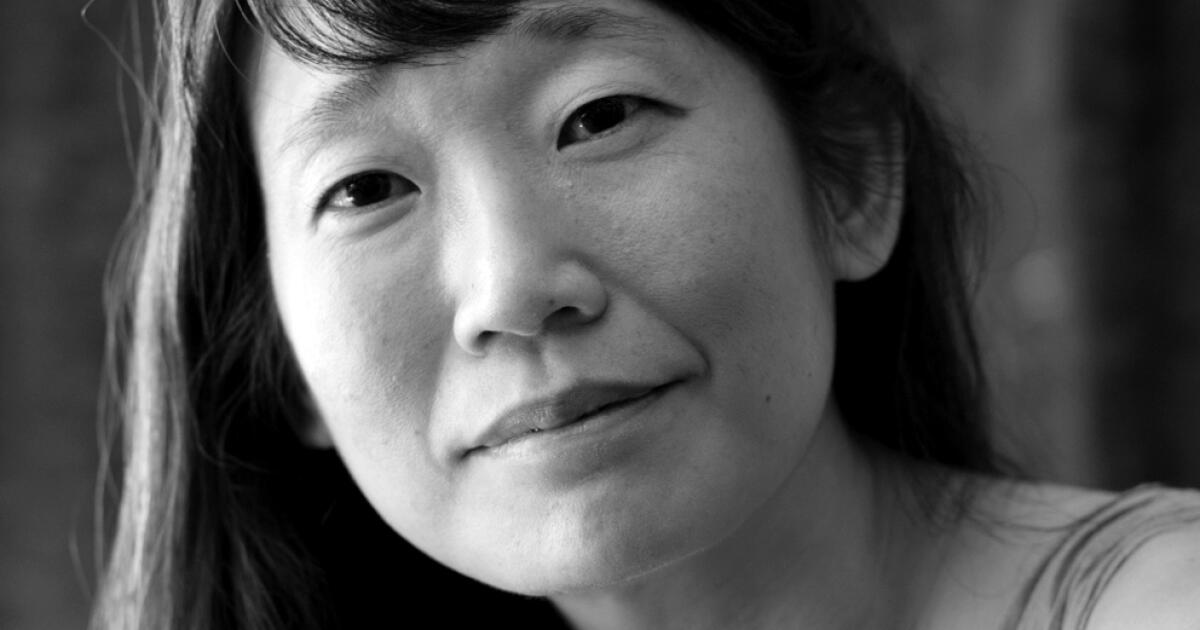In an era in which we’ve been told that mass data-mining and plagiarism will lead to a magical artificial intelligence that will solve all the great mysteries of life, “The Book of Records” is a reminder that human genius and the artistry of stunning prose are the antidote to AI’s codswallop. Madeleine Thien has penned an all-too-human novel that explores themes of collaboration and resistance, exile and community, and the banality of living in “interesting times.”
Physicists have long wrestled with a basic question: What are space and time? As human beings, we think of time as the span between the day we are born and the day we die. We understand intellectually that people have come before us and people will exist after us, but being able to grasp that time relies on empathy fostered by reading, viewing art or touching ancient buildings.
In “The Book of Records,” 7-year-old Lina and her computer scientist father are on board a 22nd-century ship carrying them into exile when he explains the basic structure of time and space to her. “He told me that everything would be obvious if I took a piece of string and folded it over and through itself to form a double-coin knot,” Lina recalls. “The string is time and the knot is space,” he concluded. “But they’re the same. See?”
Global climate change has caused the oceans to overwhelm the land, and the ship’s passengers are refugees in search of solid ground. The metaphor of the double-coin knot recurs throughout the novel; each passenger is on his or her journey through time and space.
Lina left her family library behind, except for three books about fellow voyagers: the Chinese poet Du Fu, Baruch Spinoza, the Portuguese Jewish philosopher exiled to the Netherlands, and Hannah Arendt, the German philosopher who, as as Jew, was forced to flee when the Nazis took power. Lina knows the contents of these books so intimately that when she encounters Jupiter, Bento and Blucher, who tell stories of that trio’s journeys, she becomes their wise companion.
And while Thien’s book is a novel of ideas, it’s much more visceral, tying together the sublime joys of being human and the horrors inflicted by those other humans who hate all of the things that make us imperfect but radiant beings. Du Fu, Baruch Spinoza and Hannah Arendt were all cast out of their communities by authorities who imposed narrow definitions of acceptable thought.
If we could stop thinking in such narrow definitions of time, Thien intimates, we would be capable of empathizing and understanding that even our most shattering experiences do not separate us from others. Instead, we would find meaningful community in the company of those who have been where we find ourselves now. Terence, a previously enslaved Roman playwright who wrote “I consider nothing human alien to me,” grasped that concept, as have the myriad artists and philosophers who have expanded on that thought. Human experience, even for those we may not have personal knowledge about, helps us understand our individual selves and form the empathetic communities so necessary during dark times.
Lina’s own exile begins with the loss of her mother and brother. Years later, when her father is dying, he finally reveals the secret that set them on their path: The massive project to link computers and humans to fix climate change failed, and now everyone faces extinction. What will happen to human time with no one there to record it?
Thien translates complex topics into art, making the esoteric deeply resonant. When Baruch gets his heart broken, she writes: “He closed his eyes, but it only made the world within him more vivid, so he tried to picture himself between the stars, unburdened of all sensory feeling,” time a whirlwind to him. “The world intervenes in everything we do,” she writes of his thinking, “and we turn and stumble in its innumerable fragments.”
We string together fragments to make sense of the senseless, Thien observes, “searching backwards for a cause.” She describes the “passionate indifference” that Arendt substitutes for love-making when her marriage becomes a broken clock that can’t be fixed. Reading Thien is to admire how she brush-strokes language to create beauty.
Exile is grief. And exile is set into motion by trauma, whether that be from a state set on genocide or climate change and the ravaging effects of colonialism that have stripped the land of all sustenance. Refugees from Central America, Jewish refugees from Nazi Germany, refugees cast out of their faith community for heresy, artists made refugee by the delusions of their patrons, and those left refugee on America’s streets because of economic disparity or domestic violence have all been torn away from what they love, all the things they’ve lost.
I’ve hesitated about giving away too much of the plot of “The Book of Records” for the same reason I don’t go on guided tours of a city I’m visiting. Thien’s book is full of unexpected moments of beauty and pleasure I don’t want to ruin for those about to enter its pages. Delight is in discovery.
In our own interesting times, it’s a great relief to be reminded that none of what is happening is alien. The individual insistence that “no one has ever faced this same moment” is the cause of so much pain, exacerbated by those governments that seek to erase the human history of betrayal and resistance and struggle, evoking a mythical, conflict-free path.
Destroying connections to time and community is the goal of authoritarianism. As one of the novel’s characters says, “Survival required disobedience, and each of them must become an outlaw. So be it.” Thien has written a brilliant outlaw novel.
Berry is a writer and critic living in Oregon.

